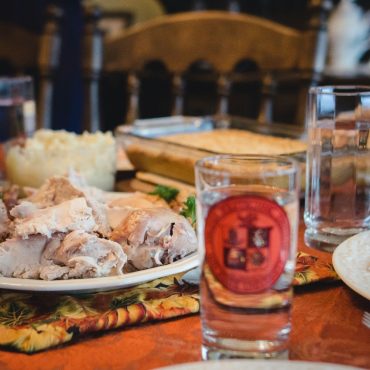Leviticus 25 reminds us that the land belongs to God; we are just “immigrants and foreign guests” here. How should that influence how we live?
Scripture:
Leviticus, chapter 25; Psalms 25-26; Acts, chapter 22
Leviticus 25:23 (CEB):
The land must not be permanently sold because the land is mine. You are just immigrants and foreign guests of mine.
Observations:
“The Land Is Mine”
In yesterday’s post (“Clean Hands and a Pure Heart”) I reflected on the fact that “the earth is the Lord’s, and everything in it” (Psalm 24:1). Today’s reading from Leviticus 25 reinforces that fact as God says plainly, “The land must not be permanently sold because the land is mine.” Those who read Scripture regularly would say, “Yes, of course it is. If the earth is the Lord’s, and everything in it, then of course the land is his.”
The problem is that we mentally limit that statement to the nation of Israel. God was talking to the Israelites in Leviticus 25. These are principles for how the nation of Israel will treat the land which God has entrusted to them. But what does it have to do with us?
Well, first, the land is still God’s. Psalm 24 does not say, “The land of Israel is the Lord’s.” It says, “The earth is the Lord’s.” There is no justification for anyone to think that doesn’t apply to them, or to their property. And there’s no reason for any nation to think that “their” land doesn’t belong to God. If it’s part of “the earth,” then it belongs to God.
“Immigrants and Foreign Guests”
The second part of verse 23 really caught my attention. “You are just immigrants and foreign guests of mine.” God made it clear to the Israelites that the land belonged to him. He distributed it to their tribes, by families. But he also told them that the land could not be permanently sold. If they “sold” it, they were really just selling the number of harvests until the next Jubilee (Leviticus 25:14-16). At the Jubilee, the land was to be returned to its ancestral family.
God’s statement that the people were immigrants and foreign guests of mine reinforces something that God says repeatedly in the Old Testament. The Israelites were to treat immigrants kindly, because they had been immigrants in the land of Egypt. They understood what it was like to be the outsiders; therefore, they should treat outsiders in their land kindly. (For example, see Leviticus 19:34 – “You must love them as yourself, because you were immigrants in the land of Egypt; I am the Lord your God.”)
Application – “Immigrants and Foreign Guests”
What would it look like for us the take that to heart? How might our cultural attitudes and actions change if we understood that we are just immigrants and foreign guests of God? First, it would probably change the way that we look at those that we consider to be immigrants here. Would we shut our doors to keep them out? Complain about their presence in “our” country? That seems hard to square with a recognition that the land is mine.
Second, it would confirm our responsibility to treat God’s creation as a treasure to be cared for, rather than a resource to be exploited. The whole structure of Jubilee in the Old Testament reminded the people that they couldn’t – shouldn’t – do anything permanent to the land. Every fifty years, it returned to the ancestral families to whom it had been entrusted. And they were required to let the land “rest” every seventh year, rather than just trying to maximize it “right now” (see Leviticus 25:1-7).
How would we put that into practice? I don’t know. But I think God would like for us to be considering such things, instead of just assuming that “anything goes.” “The earth is the Lord’s, and everything in it.” That means that anything does not “go” – the way we treat creation, and the way we treat each other.
Prayer:
Father, thank you for reminding us again that this world is yours. The land is yours, as today’s passage says. While that was directed to the people of Israel, it certainly applies to people today. And the people who live in this world are yours, too. Psalm 24 goes on to say, “the world and its inhabitants too.” Help us to consider each day how we should live in light of the fact that the world is yours. The land is yours, and all the people in the world are yours. Even when we don’t acknowledge it, we all belong to you.
Show us how to relate to one another today in ways that reflect our allegiance to you, and our obedience to you. We are all “immigrants and foreign guests” here, and we look forward to the day when we are finally at home with you. Amen.


















Post comments (0)